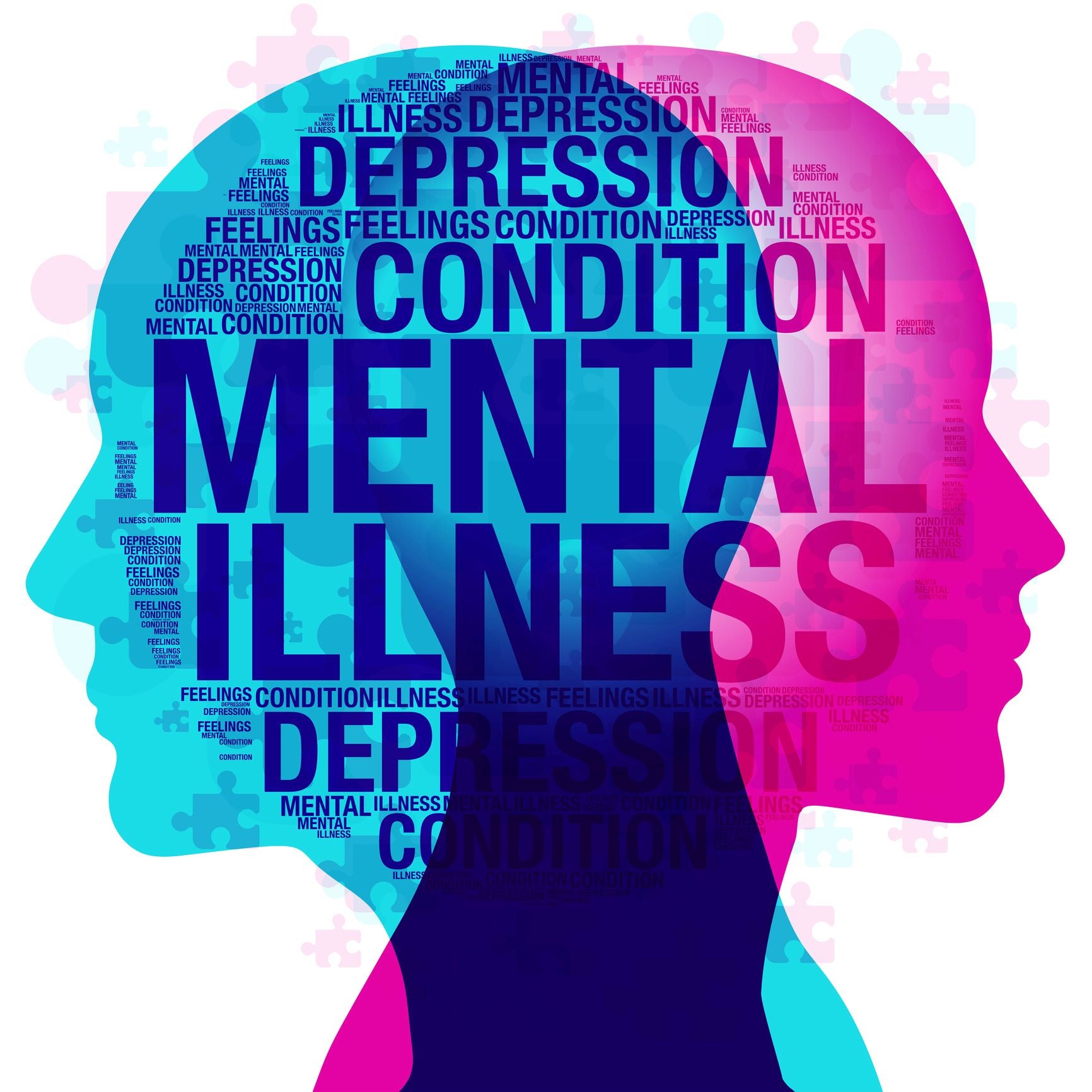Thorough Guide to Inpatient Mental Health Services Choices
Thorough Guide to Inpatient Mental Health Services Choices
Blog Article
Inpatient Mental Health Solutions: A Course to Healing and Security
Inpatient psychological health solutions play a vital duty in resolving severe mental situations, offering a very carefully structured atmosphere that cultivates healing and stability. These solutions not only include comprehensive analyses and individualized therapy plans yet additionally provide continuous accessibility to restorative interventions and medical assistance. The relevance of this technique prolongs beyond immediate alleviation, recommending a transformative influence on lasting psychological wellness. However, the intricacies of the admission process and the importance of aftercare raise important concerns regarding access and efficiency in the wider context of mental wellness care. What implications might these variables have for people looking for assistance?
Understanding Inpatient Mental Wellness Providers
Inpatient psychological health and wellness services are essential for offering extensive and structured like people experiencing extreme psychological distress or mental disorder. These solutions commonly include the admission of people to specialized centers where they get round-the-clock guidance and support from a multidisciplinary group of psychological health and wellness specialists. The key goal of inpatient care is to maintain people, guaranteeing their safety and security and addressing severe signs that may position a risk to themselves or others.
Inpatient programs often consist of a range of therapeutic interventions, including private and team treatment, drug administration, and psychoeducation. The organized atmosphere is designed to promote healing by offering a regular routine, decreasing outside stress factors, and helping with the growth of coping techniques.
Admission to inpatient services is usually taken into consideration when outpatient treatment options have confirmed inadequate or when a client is in situation. Facilities may differ in regards to their specific emphasis, with some focusing on certain disorders such as stress and anxiety, compound, or clinical depression usage. With extensive analyses and tailored treatment strategies, inpatient psychological health solutions aim to supply the required support for individuals to restore stability and get ready for a change to less intensive levels of care.
Advantages of Inpatient Treatment
The advantages of inpatient treatment are considerable, specifically for individuals encountering severe mental health and wellness difficulties. Inpatient therapy offers an organized setting that fosters recovery by minimizing distractions and stressors connected with daily life. This controlled setup permits people to concentrate entirely on their mental health, facilitating the required time for recovery.
Furthermore, inpatient treatment deals 24/7 accessibility to clinical and therapeutic support. This constant accessibility makes sure that patients can get prompt attention throughout dilemmas, which is essential for those experiencing severe episodes - inpatient mental health services. The collaborative approach among medical staff, including psychoanalysts, specialists, and registered nurses, boosts the top quality of treatment and promotes an extensive therapy strategy tailored to specific requirements
Additionally, the common facet of inpatient care cultivates a sense of belonging and support among people. Group therapy sessions and shared experiences can alleviate sensations of isolation, urging individuals to take part in their recuperation proactively.
Moreover, inpatient programs usually provide patients with important coping methods and abilities that can be testing to create in outpatient setups. By dealing with underlying problems within a helpful structure, inpatient treatment can cause extra secure results and a smoother change back to everyday life, eventually paving the course to continual recovery.
Treatment Techniques and Therapies
Different therapy strategies and treatments are used in inpatient psychological health and wellness services to deal with the distinct needs of each patient. These techniques are developed to help with healing and advertise psychological security in an organized More Help setting.

Cognitive Behavioral Therapy (CBT) is an extensively made use of strategy, helping people in identifying and modifying adverse thought patterns that add to their mental wellness issues - inpatient mental health treatment. Dialectical Actions Therapy (DBT) is another reliable technique, particularly for those with borderline individuality disorder, focusing on psychological guideline and interpersonal effectiveness
Pharmacotherapy plays an important function in therapy, with psychological medicines prescribed to handle signs of problems such as schizophrenia, depression, and stress and anxiety. Routine monitoring and adjustments make sure the efficiency of these medications while lessening side effects.
Group therapy promotes a sense of neighborhood and assistance amongst patients, permitting them to share experiences and dealing methods. In addition, alternative treatments, such as art and music treatment, promote self-expression and emotional healing.
Eventually, the mix of these diverse healing techniques offers a thorough treatment strategy tailored to every patient's certain needs, intending to enhance their overall well-being and assist in an effective change back right into day-to-day life.
The Admission Process
Navigating the admission procedure for psychological health services is a critical very first step towards healing. Throughout this analysis, the person's mental health history, signs, and prompt needs are completely checked out.
As soon as the analysis is finished, the following step entails talking about the potential therapy alternatives. The specific and the therapy group collaboratively choose on the most effective training course of action, which may consist of inpatient treatment if the scenario is regarded severe. This is complied with by the completion of required documentation, consisting of insurance coverage verification and approval kinds, to ensure that all economic and legal aspects are dealt with.
In addition, household involvement might be encouraged during this phase to provide support and gather viewpoints on the individual's circumstance. Eventually, the admission procedure aims to produce a supportive and risk-free atmosphere for the client, permitting a smooth shift into inpatient care. By participating and understanding in this process, individuals can take a crucial action toward attaining psychological health and wellness stability and healing.
-(1).jpg?v=1722502701)
Aftercare and Ongoing Assistance
After finishing an inpatient psychological wellness program, people usually encounter the crucial task of transitioning to aftercare and ongoing assistance, home which are important for continual healing. This stage is important for enhancing the skills and coping devices found out throughout the inpatient keep, making sure that individuals proceed to proceed in their mental health journey.
Aftercare commonly includes a combination of outpatient treatment sessions, assistance groups, and medicine administration. Participating in normal therapy allows individuals to deal with recurring obstacles and create strategies to manage stress factors in their day-to-days live. Assistance groups offer a feeling of neighborhood and shared experience, cultivating connection and understanding among peers facing comparable struggles.
Furthermore, continuous assistance may consist of family participation, where loved ones are educated concerning psychological health and wellness issues and urged to take part in the recovery process. This alternative approach creates a robust support network, improving the person's opportunities of long-lasting stability.
Inevitably, aftercare and recurring assistance work as a bridge between inpatient therapy and independent living, encouraging people website link to browse their psychological wellness obstacles with strength and self-confidence. Prioritizing these sources is crucial for promoting a sustainable recovery trajectory.
Conclusion

Inpatient mental health services play an essential role in dealing with severe mental dilemmas, using a meticulously structured atmosphere that promotes recovery and security.Inpatient psychological health and wellness solutions are vital for offering structured and intensive treatment to individuals experiencing extreme emotional distress or psychological ailment. With extensive analyses and tailored treatment strategies, inpatient mental health services aim to give the required support for individuals to restore security and prepare for a shift to much less intensive levels of care.

Report this page